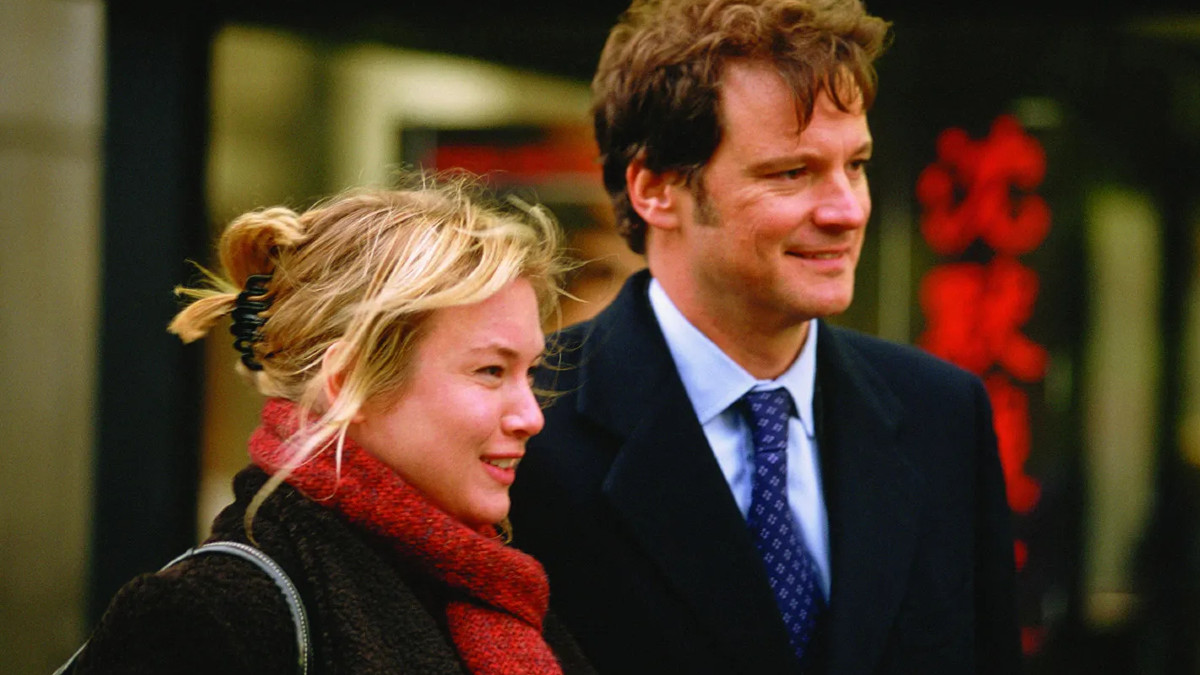Mark Darcy’s baffling death in ‘Bridget Jones’ is what happens when you cling to a franchise for too long

Yes, it’s true. Bridget Jones: Mad About the Boy, the fourth installment in the Bridget Jones Cinematic Universe, will unceremoniously kill off Colin Firth’s Mark Darcy. It’s scandalous. It’s heartbreaking. But most of all, it’s truly bewildering.
The first Bridget Jones movie, Bridget Jones’s Diary, is a Christmas rom-com classic. Yes, it sometimes leans too heavily into early ’00s fat-shaming, but wow. Who can deny the chemistry between Renée Zellweger, Colin Firth, and Hugh Grant? Who can argue against the impact of “I like you very much, just as you are?” What about the brilliance of Hugh Grant’s turn to villainy? The giddiness of Colin Firth channeling Pride & Prejudice’s Mr. Darcy? That kiss in the snow? “Oh yes, the fucking do?” Honestly, I could go on.
The third Bridget Jones film, Bridget Jones’s Baby—I’m just politely going to ignore the second movie— was, in my opinion, a refreshing surprise. I didn’t know what I was in for, and yes, I was tired of seeing Bridget Jones fumble Mark Darcy. But actually, it was once again a genuinely funny outing for this editor-turned-reporter-turned-TV-producer, one that gave Bridget and Mark their well-deserved happily ever after, kid and all. Imagine my surprise when the trailer for Mad About the Boy was released and I learned Mark Darcy was now dead and buried.
Of course, the Bridget Jones films are based on the Bridget Jones books by Helen Fielding, and yes, the Mad About the Boy book also kills off Mark Darcy. Now, I’ve never read any of the books, but I find it interesting that while Mad About the Boy is the third published book in the series, Baby was the fourth. In the publishing world, Bridget Jones’s Baby is a prequel to Mad About the Boy explaining how Mark and Bridget ended up with a kid. Why publish in that order though? I have to imagine the backlash to Mark’s death in written form was just as bad as it is now when we’re all about to be subjected to it on the big screen. Was there a need to give Mark back to her audience in some small way?
(Before anyone tries to argue that Fielding wrote this book in response to her ex-partner’s death, the book was published in 2013, while he died in 2016. That doesn’t make Fielding’s loss any less tragic, of course, but it also means it has no bearing on why Bridget Jones’ fictional life was turned upside down).
The debate about Hollywood’s obsession with endless sequels and reboots is exhausting (though in this case, the Brits are really to blame), but it feels extra insidious here. In general, romance stories promise the main couple will get their happily ever after. It’s part of what makes the genre so enduringly popular; it brings people a sense of comfort and joy that, quite frankly, other types of stories can’t. Mad About the Boy breaks that promise—it’s turning Bridget’s life from a comedy into a tragedy, because, after three movies and multiple reunions, how else are you supposed to cling to her character as a money-making machine? They had their happily ever after, so naturally, Bridget will now be forced to grieve the love of her life, engage in the hellish landscape of online dating, and start everything all over again.
Honestly, it doesn’t feel profound. It just feels depressing.
We didn’t need another Bridget Jones movie, and we certainly didn’t need one without Colin Firth’s Mark Darcy. Sometimes, a franchise reaches its natural conclusion, and Bridget Jones’s Baby was that natural conclusion. Mark and Bridget got married and had a family together. I don’t need to see anything else.
Have a tip we should know? tips@themarysue.com